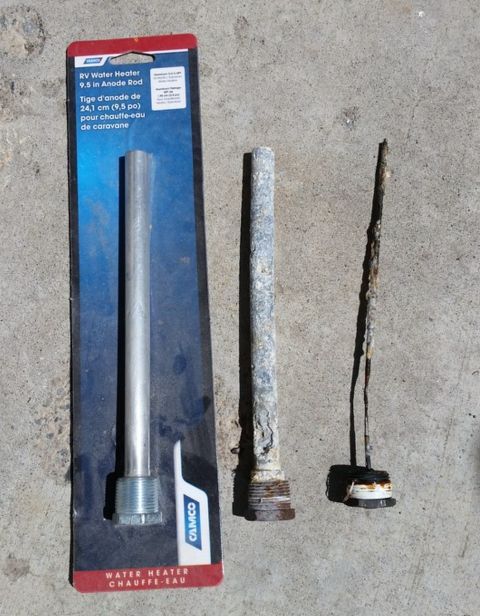Understanding the Role of the Anode Rod

Traditional water heaters, as opposed to a tankless water heater, requires an anode rod to protect its interior from rust and corrosion. Without an anode, the steel tank will wear down much sooner than its expected lifetime. Anodes protect by wearing down first and need regular checkups and eventual replacement by the professionals at All City Plumbers.
How an Anode Works
Anodes protect the tank by corroding first and prevent the need for an early water heater replacement . Due to the corrosive nature of water composition, two types of metals in contact, anode, and cathode, will create an electrochemical process known as galvanic corrosion.
Because the magnesium anode has a more active electrochemical potential than the cathode, the steel tank's electrical current flows from the anode to the tank. The anode corrodes instead of the tank, preventing unnecessary water heater repair in Northridge, CA .
Why Water Heaters Corrode
A water heater tank will corrode as a result of the water’s composition. Water can become acidic due to dissolved gases, such as carbon monoxide. Oxygen and moisture exposure can also lead to such chemical processes as rusting. If your unit’s tank has corroded, it’s important to contact your local plumber for a water heater installation right away.
When to Check an Anode
Depending on such factors as acidity or water hardness or softness, anode lifetimes can vary. However, an anode should get a checkup by All City Plumbers, a plumber in Northridge, CA , once a year, and it will need replacement when it’s 75 percent consumed.
For over 15 years, All City Plumbers has been a reliable go-to provider of water heater services in Northridge and the San Fernando Valley CA. All our plumbers are expertly trained, insured, licensed, and bonded for your peace of mind. Contact us today for quality plumbing solutions.











